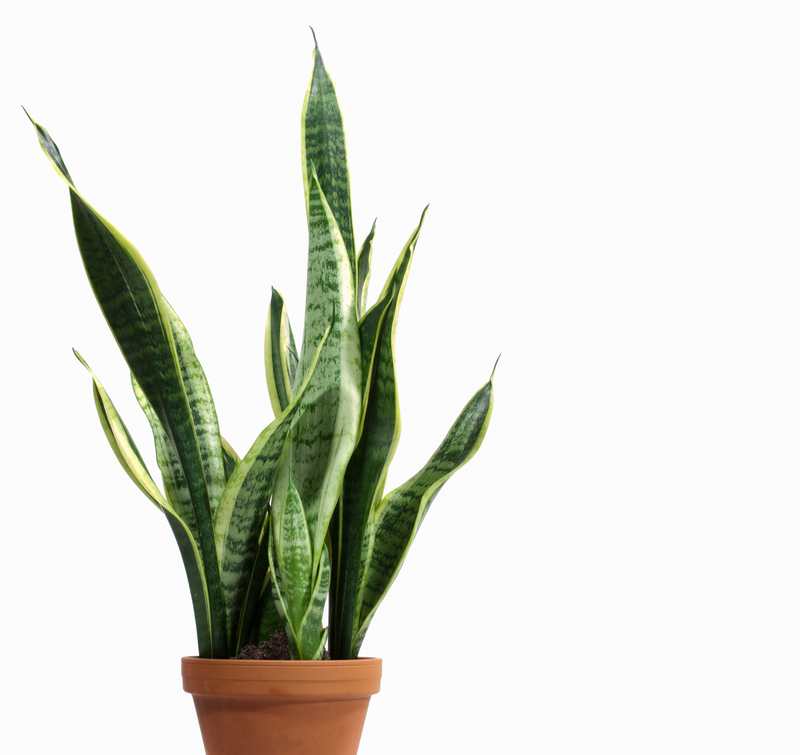Green Beginners: 9 Critical Tips for Your First Garden
Posted on 24/06/2025
Embarking on your first gardening journey can be as thrilling as it is rewarding. If you're a green beginner eager to cultivate a vibrant and flourishing garden, the right foundation is crucial. Whether you envision a lush vegetable patch or a colorful flower bed, mastering the essentials will set you up for lasting success. In this comprehensive guide, we unveil the 9 critical tips for your first garden--each tailored to empower any aspiring gardener on their green adventure.
Why Gardening is the Perfect Hobby for Beginners
Gardening isn't just about aesthetics; it's a mindful activity that rewards you with fresh air, physical exercise, mental well-being, and even fresh produce. For first-time gardeners, starting a garden may seem overwhelming. However, with the right guidance, you can avoid common pitfalls and relish the joys of nurturing plants from seed to bloom.

Green Beginners: The Importance of Laying the Right Foundations
Green beginners often face challenges like poor soil preparation, choosing unsuitable plants, or inconsistent watering. Avoid these common mistakes by learning from those who have grown before you. Let's dive into nine essential tips every new gardener needs to know!
Tip 1: Assess Your Garden Site Carefully
Location, Location, Location
Before you plant a single seed, observe your outdoor space to determine its best use. Successful gardens begin with careful planning. Consider:
- Sunlight: Most plants need at least 6 hours of sunlight daily. Track the sun's path throughout the day--morning sun is generally gentler.
- Drainage: Waterlogged sites can rot roots. Test the soil after rain; if water pools for hours, select raised beds or amend the site.
- Ease of Access: Locate your garden where you'll see it often. A visible patch keeps maintenance at the top of your mind and reduces neglect.
- Protection: Choose a spot safe from strong winds, pet or wildlife interference, and harsh weather.
The right location is fundamental for all green beginners. It determines sunlight exposure, soil moisture, and ultimately, plant survival.
Tip 2: Test and Prepare Your Soil
The Secret Ingredient for Gardening Success
Soil is the lifeblood of your garden. For beginner gardeners, understanding what's beneath your feet is crucial.
- Soil testing: Pick up a simple soil test kit from any garden center. Test for pH, nutrient content, and texture.
- Add organic matter: If your soil is sandy, add compost to retain moisture. For heavy clay, amend with well-rotted manure or compost to improve drainage and fertility.
- Mulching: After planting, mulch the garden bed to retain moisture and suppress weeds.
Healthy soil makes all the difference! Don't cut corners here--this is where true green thumb beginners start to set themselves apart.
Tip 3: Start Small and Manageable
Scale for Success
One of the most common mistakes among first-time gardeners is starting too big. Tending an overly ambitious patch can quickly become overwhelming.
- Begin with a small plot: A 6-foot by 6-foot bed or even a few containers can yield abundant blooms or vegetables.
- Focus on a handful of plants: Limit yourself to about 3-5 plant varieties that are beginner-friendly.
Expansion can always come later! By conquering a small space, you'll build skills--and confidence.
Tip 4: Select the Right Plants for Your Region
Choosing Wisely
Green beginners should prioritize adapted plant varieties--those suited to your hardiness zone and local climate.
- Read plant tags: Look for key info such as mature size, sunlight needs, and watering requirements.
- Research your region: Consult your local extension office or online gardening forums to identify the best varieties for your area.
- Go native: Native plants require less maintenance and are more resilient against pests and diseases.
- Beginner-friendly choices: Try marigolds, zinnias, sunflowers, tomatoes, basil, or lettuce -- all easy for green beginners.
Choosing the right plants is often what distinguishes flourishing gardens from struggling ones.
Tip 5: Master Efficient Watering Habits
Neither Flood Nor Famine
Proper watering is crucial for the success of first-time gardeners. Both overwatering and underwatering can be harmful.
- Water deeply, not frequently: Deep watering encourages roots to grow downward, fostering stronger plants.
- Best time to water: Mornings are ideal--less evaporation and less risk of fungal diseases.
- Check soil moisture: Insert a finger 1-2 inches deep. If it feels dry, it's time to water.
- Mulch for moisture: Retain valuable water by mulching the base of your plants.
Consistency is the key. Set reminders if you're new to daily or weekly watering routines!
Tip 6: Feed Your Plants with the Right Nutrients
Balanced Nutrition Equals Robust Growth
Plants, like people, thrive on a balanced diet. For beginners in gardening, the easiest way to nourish plants is by using organic fertilizers or slow-release formulas.
- Feed during the growing season: Start with a balanced fertilizer (such as 10-10-10) or organic compost.
- Avoid over-fertilizing: More is not always better. Excess nutrients can burn roots and inhibit plant growth.
- Observe your plants: Yellowing leaves or slow growth can indicate nutrient deficiencies.
A healthy, nutrient-rich garden ensures lush blooms and bountiful harvests for green beginners.
Tip 7: Monitor for Pests and Diseases
Early Detection, Quick Action
One of the most heartbreaking moments for new gardeners is discovering pests or diseases ravaging a treasured plant.
- Inspect regularly: Check leaves (tops and undersides), stems, and soil for signs of trouble.
- Act promptly: Remove affected leaves, handpick pests, or use eco-friendly solutions like neem oil or insecticidal soaps.
- Encourage natural predators: Ladybugs, lacewings, and birds help keep harmful bugs at bay.
Maintain a daily or weekly 'garden walk'--your plants will thank you for the attention!
Tip 8: Incorporate Regular Maintenance
Routine = Results
Consistent care is the backbone of any thriving garden. As a beginner in gardening, establishing a simple routine is key.
- Weed control: Pull weeds early before they establish and compete with your plants for nutrients and water.
- Pruning and deadheading: Trim spent blooms and damaged leaves to encourage new growth and prolong flowering.
- Keep records: Note planting dates, fertilizing, and bloom times in a garden journal to track progress and learn from each season.
Regular maintenance ensures your plants remain healthy and your garden space remains enjoyable all season long.
Tip 9: Embrace Patience and Learn from Mistakes
The Final--and Most Critical--Lesson
Gardening for beginners is a learning process. No one gets it all right the first time!
- Celebrate small successes: Every new sprout or blossom is a testament to your efforts.
- Learn from setbacks: Each failed crop or wilting plant is an opportunity to adapt and improve.
- Connect with others: Gardening communities both online and offline are full of experienced and friendly gardeners eager to share tips and encouragement.
With every season, your gardening confidence and knowledge will grow. Patience and a willingness to learn are the best tools in your shed.
Bonus: Start with Container Gardening!
If you're limited on space or want to ease into gardening, try container gardening. Containers offer flexibility, allow for better soil control, and can be moved to optimize sun and shelter.
- Choose containers with proper drainage holes.
- Use high-quality potting mixes designed for containers.
- Experiment with herbs, leafy greens, or compact flower varieties.
Container gardens are ideal for green beginners--they offer low risk and high reward!

Frequently Asked Questions for First-Time Gardeners
What are the easiest plants for green beginners?
- Basil, mint, and parsley
- Marigolds and nasturtiums
- Cherry tomatoes and radishes
How often should I water my garden?
Most plants need about 1 inch of water per week, but this varies by climate and plant type. Always check soil moisture before watering.
Is gardening expensive for beginners?
Starting small minimizes costs. Invest in quality soil and a few inexpensive hand tools. Many plants can be started from seed packets.
How do I keep pests away organically?
- Encourage beneficial insects like ladybugs
- Practice crop rotation and companion planting
- Use natural sprays like neem oil if necessary
Conclusion: Your First Garden Awaits!
Every green beginner is just a season away from a beautiful, productive garden. By assessing your site, preparing your soil, starting small, choosing adapted plants, mastering watering, feeding and maintaining your garden, watching for pests, and most of all, embracing patience--you'll cultivate both plants and wisdom.
Remember: Gardening is a journey, not a race. Trust your instincts, savor each success, and turn every challenge into an opportunity to learn. Let these nine critical tips guide your roots--and your garden--into a lush and lasting future.
Happy gardening, green beginners!
Latest Posts
Building Lush Gardens with Composting Innovations
Maximize Your Garden's Potential with Creative Seating Ideas
How community gardens are helping to combat climate change

